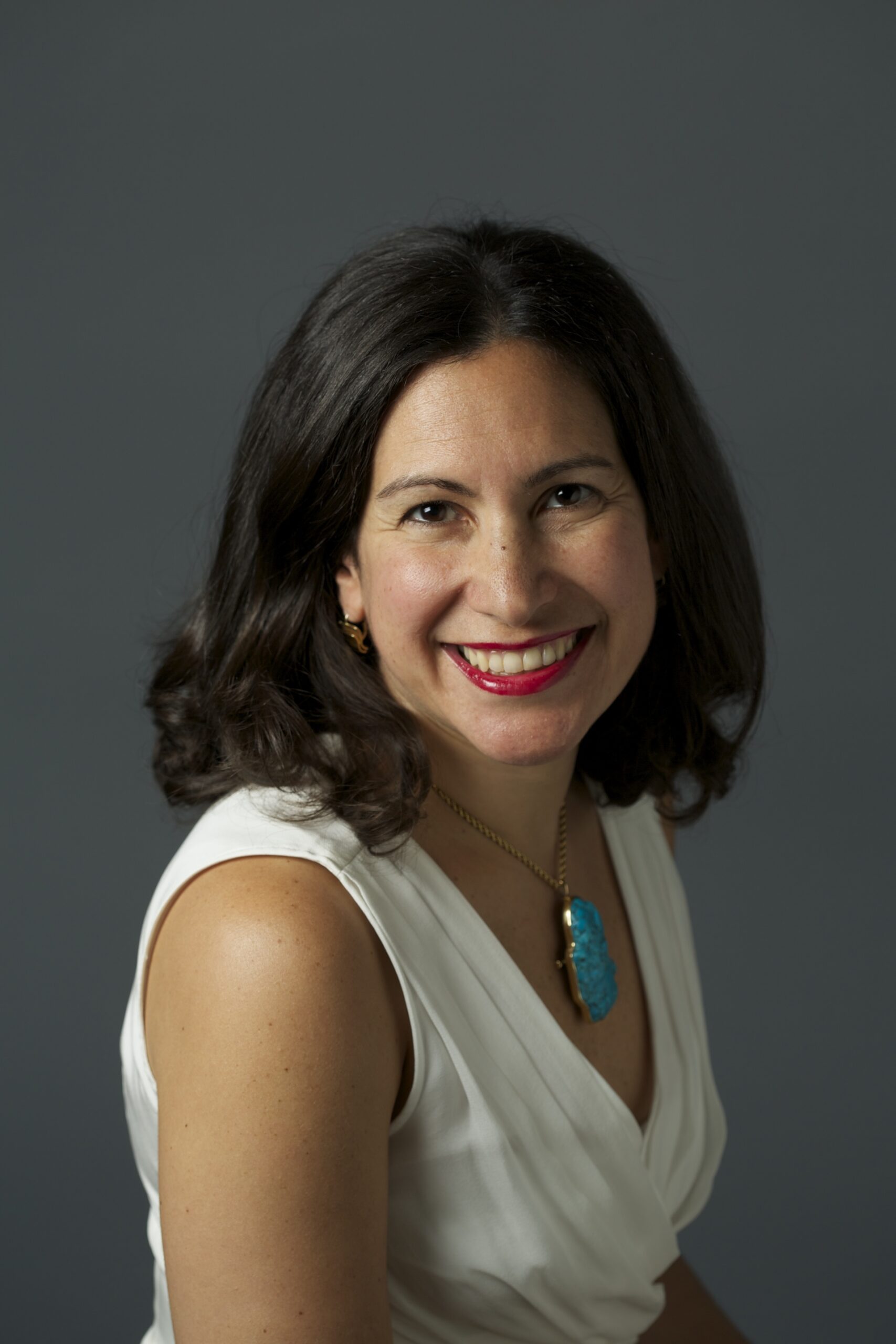 Public health specialist uses expertise to create engaging, educational STEM-based middle grade series
Public health specialist uses expertise to create engaging, educational STEM-based middle grade series
WASHINGTON DC – Follow The Antidotes as they find a way to save their water supply from plastic-eating bacteria! Dr. Patricia Mechael weaves her expertise as a public health specialist to write an engaging and educational new middle grade book featuring a colorful cast of classmates that attempt to save their town from a corporate experiment gone wrong! The Antidotes: Pollution Solution (Bold Story Press, Oct. 4, 2022) showcases a stimulating adventure for kids and touches on returning to normalcy after a global pandemic, the challenges of grief, and co-parenting in an age-friendly way. The first book in a new series is perfect for curious kids with an interest in science!
The Chesapeake Bay has become polluted by a stinky plastic-eating bacteria, pee yew! But fifth-grade friends Izi, Gir, and others take action together by forming an activist group called the Antidotes, and join forces with public health activists to find clean water solutions. The friends use STEM strategies to help save the earth from a potential disaster— they also have secret meetings, do a little spy work, and make some useful discoveries.
Along the way, they learn to embrace their differences, and discover that they are stronger when they all work together. The Antidotes race against the clock to get out the word to kids around the world about how to stay safe. But— will the Antidotes be able to get enough kids to reduce their plastic use before it makes any more fish or kids sick? Join the Antidotes in their first science adventure, and stay tuned for more stories!
The Antidotes: Pollution Solution
Patricia Mechael | October 4, 2022
Bold Story Press | Middle Grade Fiction
Paperback | 978-1-954805-24-8 | $17.99
Ebook | 978-1-954805-25-5 | $9.99

Dr. Patricia (Patty) Mechael: Award-winning digital health specialist, recognized by the John Hopkins University Knowledge for the World Distinguished Alumnus Award, the British Council UK Education Social Impact Award and Rockefeller Foundation’s Bellagio Resident Fellowship, Patty holds a PhD in Public Health and Policy from the London School of Hygiene and Tropical Medicine and a Master’s in Health Science in International Health from the Johns Hopkins School of Public Health.
On top of being a public health specialist, Patty is also a mom and writer, who combines her passions for technology and innovation, science, women’s rights, and the world to inspire kids and adults through her writing. Drawing on her career in global health, Patty’s works wrestle with the toughest public health and societal issues of our time, including the environment, pandemic preparedness, responsible technology and AI, and mental health.
She is recognized as a pioneer in the use of mobile and other technologies for health. Patty is co-founder and policy lead at HealthEnabled and has served as executive director of the mHealth Alliance and executive vice president of the Personal Connected Health Alliance. In addition, she is co-editor of mHealth in Practice: Mobile technology for health promotion in the developing world published by Bloomsbury, an editorial board member of the Journal of Medical Internet Research, and a regular contributing author to AIMed’s quarterly journal. Patty has penned more than 100 publications on various aspects of public health and technology in scientific and health journals. Her writing draws on her more than 20 years of work across more than 40 countries in Africa, Asia, and Latin America. Find out more about her at https://www.patriciamechael.com/.
Follow Patricia Mechael on Twitter!
In an interview, Patricia Mechael can discuss:
- Her extensive public health background and expertise and how it plays into the series
- The importance of clean water, and how it affects both our local and global communities
- Her passion for educating and empowering kids, specifically helping them understand global health, technology, and what they can do today and as the world’s future leaders
- What STEM is, and why it is important to her to promote girls in STEM, and the collaboration among sexes in science
- How she wrote this book with her 10-year-old son, Gabriel, and how he not only inspired the characters and the story’s development, but also her as a mother
- How this story can be beneficial for kids to read in collaboration with school science programs and/or through libraries
- The trickiness of discussing challenging topics with children in age-friendly ways, and the reasons why it is important
- How and why she touches on childhood grief and the struggle to return to normalcy following Covid-19
- How the book touches on ways to navigate and accept divorce and co-parenting
An Interview with Patricia Mechael
1. When did you get involved in the health field, and how did you know it was the field you wanted to work in?
As the daughter of Egyptian immigrants who was good at math and science and wanted to help people, I was slated to become the family’s medical doctor. At a young age, I also had an interest in the world and dreamt of being a medical doctor in Africa. While I was an undergraduate at Johns Hopkins University, I was an international relations pre-med student. During my freshman year, there was a short Wintersession course offered by the School of Public Health on Careers in International Health. It was during that course that I discovered my passion for public health. As part of that course, I was exposed to the 1993 World Development Report: Investing in Health and page after page, I kept thinking to myself, “This is what I want to do.” I still have that report, and it still energizes me.
2. What inspired you to start writing middle grade science-inspired fiction, and how did it lead to The Antidotes series?
When I was younger, I wanted to write children’s books. It wasn’t until well into my career in global health and digital health, that I found myself in the Rockefeller Foundation Bellagio Center as a fellow in the same group as the New York Times Best-selling Young Adult Fiction writer, Ruta Sepetys. Listening to her speak about her journey from music producer to fiction writing, inspired me to start writing fiction. I wrote one and a half other works of fiction before starting The Antidotes. It was at the Society for Children’s Book Writers and Illustrator’s (SCBWI) Conference in New York in 2020, that I learned there was a need for smart middle grade fiction. I figured I had a ready made audience at home with my then 7-year old son. What I was surprised to find was a writing collaborator who had great ideas and very strong opinions about what would work or not for kids his age.
3. Why is it important to discuss challenging topics with kids in age-friendly ways, and how do you manage to do so in this series?
Kids can’t vote, and yet they are the most dramatically impacted by policy decisions on big issues like climate change, gun violence, pandemic control, technology regulation, etc. They are also impacted personally by family circumstances like the loss of a parent and/or divorce. Kids need to know that they have choices and that there are paths that they can take and people that they can engage to support them as they find ways not only to survive but to thrive, including and especially each other.
4. As a woman in science, how does this book promote STEM to girls, and promote the collaboration of sexes in science going forward?
I was fortunate to grow up with a father and a mother who are both computer scientists and to hear them collaborate on code development and program debugging in the 1980s before computer science and technology images became predominantly masculine. We need good examples of what it looks like for boys and girls to collaborate in science. In The Antidotes: Pollution Solution, the two narrators – Gir and Izi – have to find a way to work together. Gir needs to get over his jealousy of Izi’s scientific talent and Izi needs to develop the confidence to be the leader that she is. In the end they find a way to each lean into their strengths and pull in the strengths of the other Antidotes.
5. What is the main focus of this book, and the main take away you’d like for kids to have after reading the first book in the series?
The main focus of this book is that there are big human-caused problems facing the world today like plastic waste and there are half-baked solutions like plastic-eating bacteria that don’t address the root of the problem. But that kids can bring together solutions inspired by science to address them. Kids have an active role to play in mobilizing collective action. I want kids to walk away feeling empowered. In this book in particular, I want kids to come away with basic public health principles related to clean water and an individual and collective motivation to reduce their use of plastic and plastic waste.
6. How will you continue The Antidotes series? What exciting adventures do kids have to look forward to?
The next book in The Antidotes series (working title Masters of Technology) is focused on technology gone wrong and a company that steals and misuses code developed by one of The Antidotes. In the book, The Antidotes will face many of the pitfalls of unregulated technology- misinformation and disinformation, misuse of personal information, cyber-bullying, and predatory on-line behavior. The current technology regulations are not keeping pace with industry and kids are paying a high price, including increased rates of depression especially among girls associated with social media. The Antidotes will need to find solutions and ways to master technology before it masters them.

A former award-winning journalist with national exposure, Marissa now oversees the day-to-day operation of the Books Forward author branding and book marketing firm, along with our indie publishing support sister company Books Fluent.
Born and bred in Louisiana, currently living in New Orleans, she has lived and developed a strong base for our company and authors in Chicago and Nashville. Her journalism work has appeared in USA Today, National Geographic and other major publications. She is now interviewed by media on best practices for book marketing.
